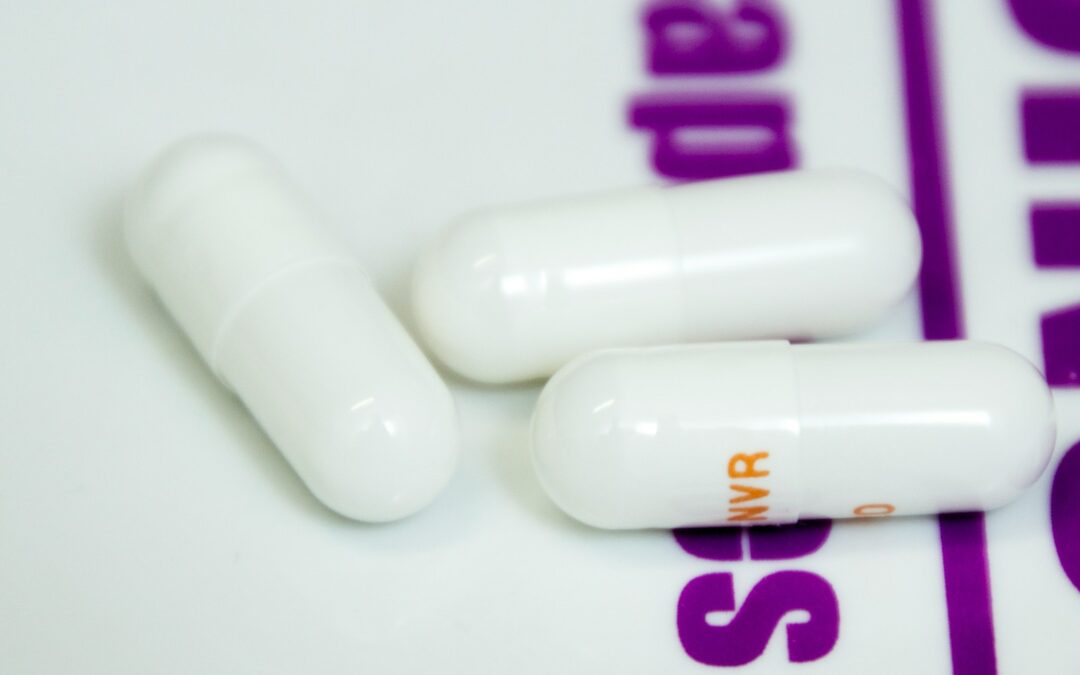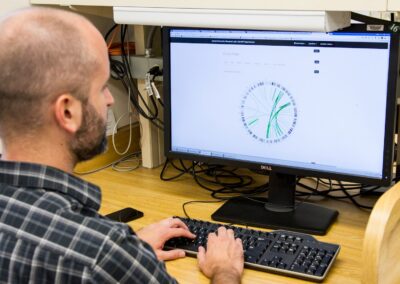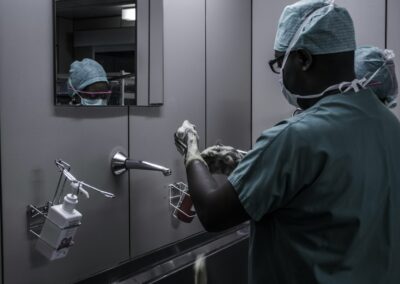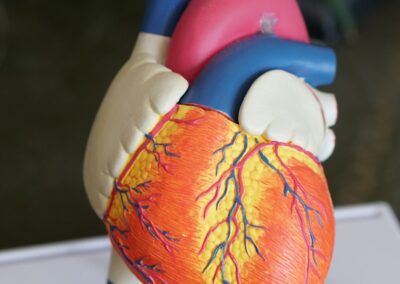Advancing Healthcare with Digital Twins
Revolutionizing Personalized Medicine
The digital twins in personalized medicine are set to transform the future of healthcare delivery by introducing unprecedented levels of customization and precision. A digital twin, in the context of healthcare, is a virtual representation of a patient’s biological systems and medical history, created using advanced technologies such as artificial intelligence and big data. This technology allows for the simulation and analysis of individual health profiles, leading to highly personalized treatment plans and interventions.
Digital twins in personalized medicine enable healthcare providers to create dynamic and detailed models of patients’ health. These models integrate a wide array of data, including genetic information, lifestyle factors, and real-time health metrics. By continuously updating and refining these virtual models, medical professionals can simulate how different treatments or lifestyle changes might affect a patient’s health. This capability allows for more accurate predictions and tailored therapeutic approaches, improving treatment outcomes and minimizing adverse effects.
For regions like Saudi Arabia and the UAE, where advancements in healthcare technology are a priority, the adoption of digital twins represents a significant leap forward. These innovations align with the region’s commitment to enhancing healthcare quality and personalizing patient care. By leveraging digital twins, healthcare systems in Riyadh, Dubai, and beyond can provide more precise and effective treatments, catering to the unique needs of each patient and driving advancements in medical practice.
Enhancing Healthcare Delivery Through Simulation and Prediction
In addition to revolutionizing personalized medicine, digital twins in personalized medicine are set to redefine healthcare delivery by enabling sophisticated simulation and predictive analytics. This technology allows healthcare providers to anticipate potential health issues and devise preemptive strategies, thereby improving overall patient management and care.
Digital twins facilitate predictive analytics by integrating various data sources and using advanced algorithms to forecast potential health conditions. For example, by analyzing a patient’s digital twin, healthcare providers can predict the likelihood of developing chronic conditions such as diabetes or cardiovascular diseases. This foresight enables proactive interventions, such as lifestyle modifications or preventive treatments, that can significantly enhance patient outcomes and reduce the burden on healthcare systems.
In urban centers like Riyadh and Dubai, where the healthcare infrastructure is rapidly evolving, digital twins can streamline care delivery by providing a comprehensive view of patient health. This integration supports more efficient management of healthcare resources and personalized care strategies, ultimately leading to improved patient satisfaction and better health outcomes.
Future Prospects and Challenges in Digital Twin Adoption
Looking ahead, the future of digital twins in personalized medicine holds immense potential, but it also presents several challenges that need to be addressed. The continued advancement and adoption of this technology will depend on overcoming hurdles such as data privacy, interoperability, and the integration of emerging technologies.
One significant challenge is ensuring the privacy and security of patient data used to create digital twins. As healthcare systems increasingly rely on digital models, safeguarding sensitive information becomes crucial to maintaining trust and compliance with regulations. Additionally, the integration of digital twins with existing healthcare systems and technologies requires seamless interoperability to maximize their effectiveness.
Despite these challenges, the future prospects for digital twins in personalized medicine are promising. Continued research and development, combined with advancements in artificial intelligence and data analytics, will drive further innovation in this field. For business executives and healthcare leaders in Saudi Arabia and the UAE, embracing these advancements will be key to staying at the forefront of medical technology and delivering superior patient care.
Conclusion: Embracing Innovation in Healthcare
In conclusion, the emergence of digital twins in personalized medicine marks a pivotal shift in the future of healthcare delivery. By enabling highly personalized treatment plans and providing predictive insights, digital twins offer a transformative approach to managing patient health. For regions like Saudi Arabia and the UAE, where technological advancement and healthcare excellence are paramount, adopting digital twin technology represents a strategic move towards enhancing medical practice and patient outcomes.
As the technology continues to evolve, the integration of digital twins into healthcare systems will become increasingly sophisticated, offering new opportunities for innovation and improvement. For healthcare providers and business leaders, staying abreast of these developments and investing in cutting-edge technologies will be essential for driving progress and ensuring the delivery of high-quality, personalized care.
—
#DigitalTwinsInPersonalizedMedicine, #HealthcareDelivery, #FutureOfHealthcare, #PersonalizedMedicine, #SaudiArabia, #UAE, #Riyadh, #Dubai, #ArtificialIntelligence, #ModernTechnology, #BusinessSuccess, #Leadership, #ProjectManagement























